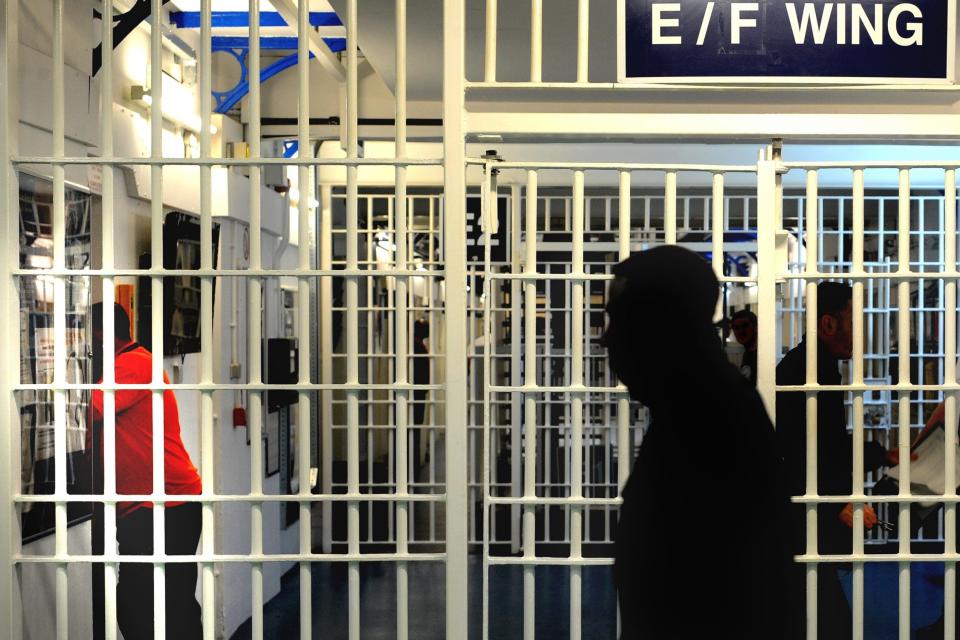Anne McElvoy: Fixing our prisons is difficult — but it’s right that we strive to do so

Dostoevsky’s insight that the “degree of civilisation of a society can be judged by entering its prisons” hails from 19th-century Russia. It puts England’s penitentiaries in 2018 in an unflattering light. The report by the chief inspector of prisons, Peter Clarke, into conditions at HM Prison Birmingham , run by the private firm G4S, is stark even by the standards of such documents.
Clarke describes the overpowering stench of home-cooked drugs, which are thought to have claimed the lives of several inmates recently, prison officers with no idea where their charges were or cowering from them, corridors awash with vomit, blood and commonplace bullying.
The Ministry of Justice has taken the prison under its control and implemented emergency measures. In addition, £30 million of emergency funding will be handed out to the 10 worst-performing jails to “bring them back up to standard”.
This will only scratch the surface of a problem which has eluded the grip of governments to the point where prisons have moved from the category of forgotten public service to unspoken national shame. Not unreasonably, critics of privatisation are in “told-you-so” mode about Birmingham.
Oddly, they were quiet when Wormwood Scrubs (run by the state) was found to be awful too — its last inspection a year ago noted “problems there were intractable and prisoners were suffering not only appalling conditions but an almost complete lack of rehabilitative activity”.
By January 2018, Nottingham Prison, also publicly run, was struggling to improve its dire safety record. London’s (privately-run) Pentonville prison has been slated for long-overdue closure but remains open because of the acute shortage of places.
The Government can rightly be criticised for failing to act earlier at Birmingham. But the poor conditions across state and private prisons also tell us that there is no easy argument about the superiority of one system over another. The penal system as a whole is broken and is the product of indifference at the heart of government.
Rory Stewart, the new prisons minister, has been disarmingly frank in his pledge to resign if conditions do not improve in a year. But outrage over this subject is a political parcel that gets passed around until the music stops and someone is obliged to do something. Stewart is a junior minister. In the scheme of resignation threats his is not one to add to Theresa May’s holiday nightmares. The real pressure should fall on his boss David Gauke, the Justice Secretary, to address the main sources of the present crisis.
The first is a shortage of prison places, though this was an issue in 2007 when Lord Falconer, who yesterday took aim at the Government’s handling of the prisons crisis, was appointed the first Justice Secretary by Tony Blair when he was Prime Minister.
Serious drug use among prisoners has spiralled since then but a lot of that is to do with the greater ease with which synthetic drugs can be made and the ease with which drones can deliver illicit supplies to those inside.
Most of all, staff numbers have failed to rise to meet the challenge of more violent criminals being put behind bars. The pressure cooker predictably exploded in the Birmingham Prison riot of 2016.
Ideas for reform have come in fits and starts — which is nothing new. I remember writing about the stand-offs between Jack Straw and Falconer on the wisdom of early release schemes in this paper more than a decade ago. David Cameron gave a brave speech for a leader in 2016 questioning the effectiveness of having such a large prison population and the failure to reduce reoffending. “Warehousing ever more prisoners,” he noted, “is not financially sustainable, nor is it necessarily the most cost-effective way of cutting crime.”
"We all have to live with the consequences of institutions that brutalise rather than punish and reform"
Even allowing for the fact that 2016 turned out to be the Ides of March for Cameron and the May Government has been a one-stop shop of Brexit troubles since, the lack of any sustained plan for improving our prisons is lamentable.
Too many “whizzy” ideas, to cite an experienced prison governor, come and go. Schemes such as social impact bonds, through which investors receive dividends based on the results achieved by a project — in this case a reduction of reoffending — were trialled with a fanfare in Peterborough but quietly ended early, with only minor improvements to their name.
Liabilities ended up back with the probation and other after-prison services and the conclusion that the scheme had too small an impact (ironically) to scale up.
Overall, the Ministry of Justice is one of the departments which, as a former incumbent puts it, has “more pilots than easyJet”. It also churns through ministers too quickly to be effective. Chris Grayling presided over an extraordinary muddle of policies, of which the strangest was the aborted attempt to sell British “expertise” in prisons and probation to Saudi Arabia. His successor, Michael Gove, pushed prison literacy as part of a broader rehabilitation mission, which now languishes untended.
We are on our third Justice Secretary since then (after Liz Truss and David Lidington) with no discernible trace left by the previous incumbents.
This week’s outrage will fade because prisons are something few of us see or dwell on. Yet we all have to live with the consequences of re-offending and institutions that brutalise rather than punish and reform. Dostoevsky understood something we have forgotten: the reason to improve our jails is not because we have to but because we should.
Anne McElvoy is senior editor at The Economist

 Yahoo News
Yahoo News 